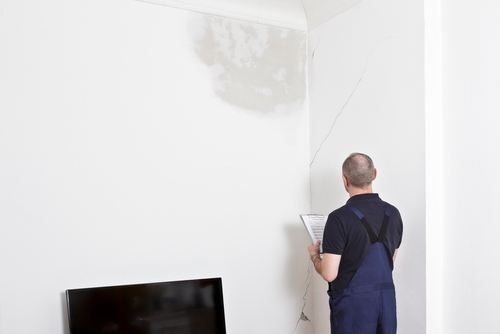When Government Property Causes Damage: Your Rights Against the City
Your car hits a massive pothole on a city street, causing thousands in damage. A malfunctioning city water main floods your basement. A falling tree from city property crushes your fence. If you’re facing property damage caused by the City of Houston, you’re likely wondering whether you can hold the city accountable for your losses. The answer isn’t straightforward – while Texas law generally protects government entities through sovereign immunity, the Texas Tort Claims Act creates specific exceptions that might allow you to pursue compensation. However, significant limitations exist, particularly for common issues like street conditions and sewer problems.
💡 Pro Tip: Document everything immediately after property damage occurs – take photos, videos, and gather witness information. This evidence becomes crucial if you pursue a claim against the city.
Are you wrestling with property damage claims against the City of Houston? Navigating these waters can be tricky, but the JCE Law Group is here to guide you through every twist and turn. Don’t let bureaucratic hurdles keep you from seeking what you deserve—give us a ring at 504-754-5884 or contact us today to explore your options.
Understanding Your Rights When a Houston Property Damage Lawyer Can Help
The Texas Tort Claims Act serves as the primary legal framework for property damage claims against governmental entities. This law, enacted in 1985 and last amended in 2011, provides a limited waiver of the state’s immunity from suit for certain negligent acts. When working with a Houston property damage lawyer, you’ll discover that the Act specifically waives governmental immunity for property damage caused by the use of tangible personal or real property – but only if the governmental unit would be liable as a private person under Texas law. This distinction proves critical because it means the city must be held to the same standard as any private property owner.
However, significant exclusions exist that often surprise property owners. Under state law, the City of Houston explicitly maintains immunity for property damage caused by the condition of its streets, including potholes and objects in the roadway. Similarly, the city won’t reimburse residents for sewage damage from clogged sewer lines. These exclusions stem from specific provisions in the Texas Tort Claims Act that protect municipalities from liability for discretionary functions and infrastructure maintenance decisions. A knowledgeable Houston property damage lawyer can help determine whether your specific situation falls within the Act’s limited waiver provisions or whether alternative legal theories might apply.
💡 Pro Tip: Even if the city claims immunity for your type of damage, exceptions may exist. For instance, if city employees actively created a dangerous condition rather than simply failing to repair it, different rules might apply.
Critical Deadlines and Steps for Filing Your Claim
Time moves quickly when pursuing property damage claims against governmental entities, and missing crucial deadlines can permanently bar your recovery. The process begins with understanding that claims against the City of Houston follow different procedures than typical insurance claims or lawsuits against private parties. Most importantly, you must provide formal notice to the city within specific timeframes – typically much shorter than the standard statute of limitations for property damage claims.
- Immediate documentation: Within 24-48 hours, photograph all damage, secure repair estimates, and identify any city equipment or property involved
- Notice requirement: File formal written notice with the city within 6 months of the incident – this deadline is jurisdictional and cannot be extended
- City response period: The city typically has 45-60 days to investigate and respond to your claim
- Lawsuit filing: If the claim is denied, you generally have 2 years from the date of injury to file suit, but only after exhausting administrative remedies
- Discovery phase: Expect 6-12 months of evidence gathering if litigation proceeds, as governmental entities often have extensive documentation requirements
💡 Pro Tip: The 6-month notice requirement catches many claimants off guard. Unlike typical property damage cases where you might have years to file suit, failing to notify the city within 6 months typically results in automatic dismissal, regardless of your claim’s merit.
Navigating Houston Property Damage Claims with Professional Legal Guidance
Successfully resolving property damage claims against the City of Houston requires understanding both what the law allows and what practical strategies yield results. While the Texas Tort Claims Act creates opportunities for recovery, the reality is that governmental entities vigorously defend against claims and often prevail based on immunity defenses. JCE Law Group has extensive experience handling these complex cases and understands the nuances between claims that succeed and those dismissed on immunity grounds. A Houston property damage lawyer from the firm can evaluate whether your situation involves the limited circumstances where governmental immunity doesn’t apply, such as motor vehicle accidents involving city vehicles or injuries from dangerous conditions on government premises where the city had actual notice of the specific danger.
The path to resolution often involves multiple strategies beyond just filing a claim under the Act. Insurance coverage analysis becomes crucial – your homeowner’s or auto insurance might provide coverage even when the city claims immunity. Additionally, identifying whether private contractors performed the work that caused damage can open alternative avenues for recovery. When the Houston damage claim filing procedures seem overwhelming, having legal guidance ensures you don’t miss critical opportunities or deadlines that could affect your ability to recover compensation for your losses.
💡 Pro Tip: Keep detailed records of all communication with city departments. Email correspondence often provides the best evidence of notice and can demonstrate whether city officials acknowledged the dangerous condition before your damage occurred.
Common Property Damage Scenarios and Government Liability Exceptions
Understanding which types of property damage might qualify for compensation under the Texas Tort Claims Act requires examining specific scenarios and how courts have interpreted governmental liability. The Act’s language about tangible property use creates a framework where some situations clearly fall within the waiver of immunity while others face near-certain dismissal. For example, if a city garbage truck backs into your parked car, this typically qualifies as a covered claim because it involves the operation of a motor vehicle. However, if flooding occurs because the city failed to maintain storm drains, immunity often applies because infrastructure maintenance decisions are considered discretionary governmental functions.
Vehicle-Related Property Damage Claims
Motor vehicle accidents involving city vehicles represent one of the clearest paths to recovery under the Act. When city employees operating vehicles in the course of their employment cause property damage, the governmental immunity waiver typically applies. This includes police vehicles, fire trucks, city maintenance vehicles, and other municipal fleet vehicles. However, emergency vehicles responding to calls may have additional protections, and proving negligence becomes more challenging when emergency circumstances exist. The key factor is whether the city employee was acting within the scope of employment and whether their actions would create liability for a private employer under similar circumstances.
💡 Pro Tip: If a city vehicle causes damage to your property, obtain the vehicle number, department, and driver information immediately. City vehicles should have identifying numbers that help track down the responsible department and driver for your claim.
Proving Your Case: Evidence Requirements for Municipal Property Damage Claims
Building a successful property damage claim against the City of Houston requires more substantial evidence than typical insurance claims. Because governmental entities enjoy presumptive immunity, claimants must overcome this protection by proving their case fits within specific statutory exceptions. This heightened burden means gathering comprehensive documentation from the moment damage occurs. Beyond basic photographs and repair estimates, you’ll need evidence establishing the city’s relationship to the property or condition that caused damage, prior notice of dangerous conditions if applicable, and clear causation linking city action or inaction to your losses.
Critical Evidence Categories
The most persuasive evidence in governmental property damage claims often comes from the city’s own records. Public information requests can reveal maintenance schedules, prior complaints about dangerous conditions, inspection reports, and internal communications about known hazards. For instance, if multiple residents previously reported a dangerous tree on city property before it fell and damaged your home, these reports strengthen your position that the city had actual notice of the hazard. Additionally, evidence of similar incidents in the same location can demonstrate a pattern the city knew about but failed to address, potentially overcoming certain immunity defenses.
💡 Pro Tip: Submit public information requests early in your claim process. Cities must respond within specific timeframes, and obtaining internal records about the condition that caused your damage can dramatically strengthen your negotiating position.
Frequently Asked Questions
Understanding Your Legal Options
Property owners facing damage potentially caused by city negligence often have similar concerns about their rights and the claim process. These questions address the most common issues that arise when considering action against the City of Houston.
💡 Pro Tip: Write down all your questions before consulting with an attorney. Having a comprehensive list ensures you address all concerns during your initial consultation and helps your lawyer provide more targeted advice.
Moving Forward with Your Claim
Taking action promptly protects your rights and preserves important evidence. Understanding the timeline and requirements helps ensure you don’t miss critical deadlines that could bar your recovery.
💡 Pro Tip: Start a claim diary immediately after property damage occurs. Document dates, conversations, expenses, and how the damage affects your daily life – this contemporaneous record often proves invaluable if your case proceeds to litigation.
1. What types of property damage does the Texas Tort Claims Act actually cover when suing the City of Houston?
The Act primarily covers property damage from motor vehicle accidents involving city vehicles and dangerous conditions on government property where the city had actual notice. However, it specifically excludes damage from street conditions like potholes, sewer backups, and most infrastructure-related issues. Each case requires careful analysis to determine if exceptions apply.
2. How long do I have to file a property damage claim against the City of Houston?
You must provide formal written notice to the city within 6 months of the property damage occurring. This is much shorter than typical legal deadlines and missing it usually bars any recovery. After providing notice and exhausting administrative remedies, you generally have 2 years from the date of damage to file a lawsuit if necessary.
3. Can I sue if a pothole damaged my car or if city sewage backed up into my home?
Unfortunately, Texas law specifically protects the City of Houston from liability for property damage caused by street conditions, including potholes, and from sewage backups due to clogged sewer lines. These exclusions make recovery very difficult unless you can prove exceptional circumstances, such as the city creating the dangerous condition through affirmative conduct rather than mere neglect.
4. What evidence do I need to prove the city is responsible for my property damage?
You’ll need photographs of the damage and the condition that caused it, documentation showing the city owned or controlled the property, any prior complaints or reports about the dangerous condition, witness statements, and proof of your damages through repair estimates or receipts. Public records requests often yield crucial evidence about the city’s knowledge of hazardous conditions.
5. Should I file with my insurance first or pursue a claim against the city?
Generally, filing with your insurance provides quicker relief while preserving your right to pursue the city. Your insurer may have subrogation rights to recover from the city if liability exists. However, using insurance affects your premiums and deductibles. An attorney can help evaluate whether direct action against the city makes more sense based on your specific circumstances and coverage.
Work with a Trusted Property Damage Lawyer
When government property or actions damage your property, you need legal guidance that understands both the complexities of the Texas Tort Claims Act and the practical realities of pursuing municipal entities. The attorneys at JCE Law Group bring extensive experience evaluating governmental liability claims and identifying when exceptions to immunity might apply. Rather than accepting initial denials at face value, skilled legal representation can uncover evidence, identify applicable legal theories, and negotiate effectively with city attorneys who handle these claims daily. If you’re facing property damage potentially caused by the City of Houston, understanding your rights and options starts with a thorough case evaluation considering all possible avenues for recovery.
If property damage has thrown you a curveball, let JCE Law Group help you make sense of the chaos. Don’t let red tape trip you up—reach out today at 504-754-5884 or contact us to see how you can navigate your claim with confidence.



